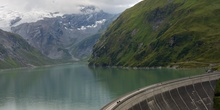Climate Change & Energy
Our Work
Latest in Climate Change & Energy
-
New report launch: Call for a new vision for responsible renewable energy with a clear European dimension
Claude Turmes MEP hosted an event launching both IEEP’s report and a debate on the future of renewable energy in Europe. In the our report IEEP present how a resource efficient energy system might be delivered in a way that minimises impact on biodiversity and the wider environment.
-
A New Vision for Responsible Renewable Energy with a Clear European Dimension
Renewable energy is key to the decarbonisation of Europe’s energy supply, however, the scale of expansion needed will have significant impacts over a considerable area. This new report suggests how a resource efficient energy system might be delivered in a way that minimises and mitigates impacts on biodiversity and the wider environment.
-
New report: delivering low carbon transport fuels post 2020
How should EU policy support the transition to low carbon transport fuels post 2020? A new IEEP led report argues that future policies should be differentiated to tailor support towards specific objectives and technologies that offer the greatest potential for a low carbon future.
-
New report is out: delivering low carbon transport fuels post 2020
How should EU policy support the transition to low carbon transport fuels post 2020? A new IEEP led report argues that future policies should be differentiated to tailor support towards specific objectives and technologies that offer the greatest potential for a low carbon future.
-
Conclusion on ILUC in sight
After five years of discussion, a landmark moment has been reached whereby the indirect land use change (ILUC) impacts of biofuels almost certainly will be addressed in EU law.
-
Building a high value bioeconomy in the UK: opportunities from waste
The UK is exploring opportunities to develop a high value bioeconomy based initially on waste. IEEP is helping to identify international best practice examples in order to maximise the environmental and economic benefits of this new Government initiative.
-
Getting delivery right: the EU 2030 climate and energy targets and the challenge of governance
The EU’s commitment to GHG reductions of “at least” 40% by 2030 are a useful contribution to international climate negotiations. But does the package of energy targets offered by the European Council at the same time put us on the right track to long-term decarbonisation goals? IEEP’s Martin Nesbit offers a personal perspective on what needs to be done, and how the governance arrangements need to be tightened.
-
The Manual: Chapter 3 - Climate change
This is a chapter of IEEP’s Manual of European Environmental Policy. This chapter on EU climate change policy outlines the initial EU programme to stabilise CO2 emissions in the EU with explanations of the directives, decisions and legislation that were employed to improve energy efficiency and reduce emissions.
-
The Manual: Chapter 13 - Sectoral policies
This is a chapter of IEEP’s Manual of European Environmental Policy. This chapter sets out the development of some of the most important links between EU environmental policy and other policy areas, such as agriculture, forestry, fisheries, transport, trade, and so on.
-
Europe’s Climate and Energy Crossroads – IEEP seminars for MEPs on climate and energy issues
IEEP has prepared two briefing documents on the climate and energy challenge in Central and Eastern European Member States, and in Southern European Member States. The briefings are background for a seminar we are organising for Members of the European Parliament, the first in a series on Europe’s Climate and Energy Crossroads.
-
Greener Britain: Practical proposals for party manifestos from the environment and conservation sector
A coalition of the UK’s leading environmental groups, including IEEP, is calling for all political parties to commit to a greener Britain by 2020 by pledging seven major priorities to reform the way we use energy, build communities and protect nature.
-
Space for energy crops – An assessment on the potential contribution of Europe’s energy future
The overall energy potential that can be produced from growing dedicated energy crops on ‘spare’ land in the EU is low. This new report explores the potential for the additional production of energy crops in Europe on land not already used for food production, forestry, or providing other important services, and assesses some of the challenges associated with increasing output.
-
Press release - Biofuels don’t deliver but bioresources have promise
Biofuels produced from conventional agricultural crops deliver only limited reductions in greenhouse gas emissions (GHG) and compete for limited supplies of land.
-
Environmental policy and the UK’s review of the EU Balance of Competences
The UK Government’s Balance of Competences review has now taken evidence on 25 subject areas, including the 6 with the most relevance for the Environment. We take stock of the IEEP’s contributions, and consider what a possible UK renegotiation might mean for the environment.
-
IEEP’s latest reflections on the European Commission’s proposal to mitigate indirect land use change from biofuels – June 2013
How can we achieve a more sustainable biofuel policy in the EU? What is needed now and what path should policy take beyond 2020? Read the latest IEEP briefing around the ongoing ILUC debate.
-
Biofuels and ILUC – Q&A
Recurring questions on biofuels and ILUC are addressed in IEEP’s latest report to help build a robust policy to deal with ILUC and other impacts of large scale production of first generation biofuels.
-
Shifting away from conventional biofuels
The UK has ample potential to use wastes and residues for advanced biofuels and create jobs in this emerging industry – but safeguards are key to ensure this is done in an environmentally sustainable way.
-
Land as an Environmental Resource
How can we meet the different and often conflicting demands we make on our limited supply of rural land in Europe? A more strategic approach to the way in which land is used is needed than has been the case in the past. This report for DG Environment looks at the data, the challenges and the policy options for Europe.
-
The sustainability of advanced biofuels in the EU
Using wastes and residues for biofuels has many advantages. But ensuring sustainability and including safeguards in EU legislation are critical issues.
-
Alternative means of reducing CO2 emissions from UK road transport
Up to 2020 greater use of renewable electricity is the leading alternative to biofuels to reduce the carbon intensity of car and rail transport fuels. To realise this potential requires a mix of responses, including: increasing the decarbonisation of existing transport fuels; improving the energy efficiency of vehicles; and changing the way vehicles are used.
Related
-

Developing a sustainable future for biofuels
Disseminating knowledge and informing the debate around the future of biofuel policy in the EU.
Highlights
-

A New Vision for Responsible Renewable Energy with a Clear European Dimension
Renewable energy is key to the decarbonisation of Europe’s energy supply, however, the scale of expansion needed will have significant impacts over a considerable area. This new report suggests how a resource efficient energy system might be delivered in a way that minimises and mitigates impacts on biodiversity and the wider environment.
-

Biofuels and ILUC – Q&A
Recurring questions on biofuels and ILUC are addressed in IEEP’s latest report to help build a robust policy to deal with ILUC and other impacts of large scale production of first generation biofuels.
-

The Indirect Land Use Change Impact of the Use of Biofuels in the EU
-
The Land-Use Implications of EU Bioenergy Policy: Going Beyond ILUC
